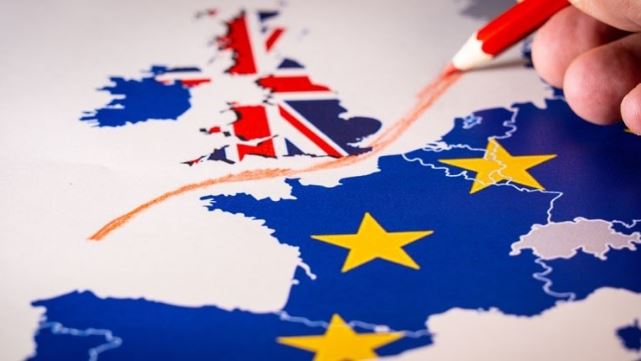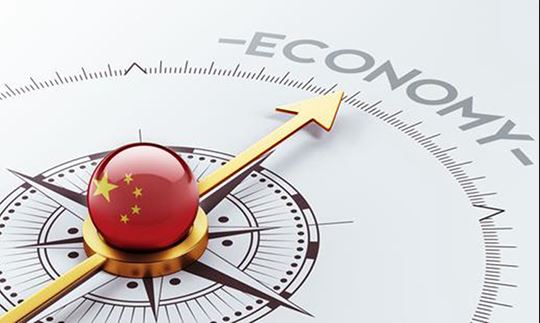Challenges of Brexit: Luxury Concierge Business in the UK
Challenges of Brexit: Luxury Concierge Business in the UK
Challenges of Brexit – The UK public voted to leave the European Union on June 23, 2016. The leave is termed as Brexit and carries along with numerous speculations of potential effects to businesses within the UK and the world over. Lawyers and legal experts have had mixed reactions where a section argues of the potential risks to businesses while the remaining section argues of the potential benefits (Cooper, 2016, p. 414; Redelinghuys, 2016, p. 24). However, the Brexit calls for a negotiation between UK and Europe. The vote does not have legal effects on the laws of the UK and EU. As a result, the UK will remain part of the EU until an agreement to exit is signed or in a period of two years after the UK government issues a formal notice of exit (McLaren, 2016, p. 29).
The Brexit denies the UK some of its rights to participate in EU processes and thus has potential implications on the businesses in the UK. This report will analyze the possible implications of the Brexit on the luxury concierge businesses in the UK. Luxury concierge business is a customer service-based business that attends to visitors through the arrangement of luxury services such as hotel bookings, hotel servings, and air tickets (Som & Blanckaert, 2015, p. 90). The business encompasses many institutions such as hospitals, office buildings, airports, malls, colleges, corporations and apartment buildings. The luxury concierge business in the UK has in the previous past recorded an extraordinary growth. The business is however affected by the Brexit since it deals with several customers from several countries outside the UK (Sinn, 2016, p. 42). Besides, the article will review the possible strategic plans that the luxury concierge businesses can take to address the potential effects of the Brexit.
The UK legal framework for its EU membership and the processes through which it fulfills its EU obligations is found in the European Community’s Act 1972. The EU law includes the principle of direct effect meaning individuals and business can invoke an EU provision for a particular country or with another individual (Fichtner et al., 2016, p. 359; Sked, 2015, p. 41). The EU treaties of the direct effects explain further that the obligations are unconditional, precise and do not require additional measures at either the national or European level. The EU precedence principle is also advantageous to business enterprises. The principle states that the EU laws are superior to the national laws of the member states and that the member states may not exercise a national law that contradicts the EU law (Laughlin, 2016, p. 49). The exit from the EU implies that the EU courts have no control over the UK issues. The luxury concierge business, therefore, does not enjoy the benefits of the above two principles with significant effects on the business.
Challenges of Brexit and Effect on Trade
The effects of the Brexit have caused market volatilities and ongoing uncertainty about the future of the businesses in the UK. The luxury concierge business thus requires putting in place contingency plans and developing strategies to address the uncertainties (Mcloughlin & Aaker, 2010, p. 79). The business corporations should identify the aspects of their businesses likely to be affected by the Brexit. The corporate should consider forming teams that report to the senior management to assess the potential impacts of the Brexit on the businesses (Bianchi, Cosenz and Marinković, 2015, p.84). The companies cannot yet conduct a detailed long-term planning at the period of the post-Brexit regime. However, the companies are better placed when the management knows where the issue lies as that will give an idea of the planning process (Shackle, 2016, p. 13).
The luxury concierge business enterprises also need to assess their position on the Brexit whether the enterprises will comment actively or contribute their views relevant to the luxury concierge industry (Fichtner et al., 2016, p. 301). The enterprises may also consider their participation in the initiatives that shape the post-Brexit regime (Simms, 2016, p. 26).
At the moment, there are three exit models following the referendum vote to exit the EU. The Norway model will see the UK join the European Free Trade Association and European Economic Area (EEA). The condition will allow the UK to access a single market and the EU trade without restrictions and tariffs (Harris, 2016, p. 43; McDonnell, 2016, p. 20). However, the UK will be barred from accessing the critical EU trade agreements. The Swiss model provides that the UK can join the European Free Trade Association only and enter bilateral agreements with the EU in specific sectors (Shankar & Carpenter, 2012, p. 47).

The process is, however, lengthy and complex in addition to costly. Finally, the totally out model suggests that the UK assumes the same position as any other member of the World Trade Organization (WTO) (Smith, 2016, p. 20). The position implies that the UK can negotiate a free trade agreement with the EU after seven years of negotiation between the EU and Canada.
With the perceived challenges of Brexit and the above three models, the luxury concierge businesses can consider reviewing the industry terms dealing with licensing, cross-border operations, a forum for disputes, tax, and terms dealing with material adverse effect (Rieth, Michelsen & Piffer, 2016, p. 577). The enterprises should moreover consider Brexit as a risk factor in contracts. Therefore, the enterprises must enter into the contracts very carefully to avoid the unintended consequences given the uncertainties of the post-Brexit conditions.
It is imperative for the luxury concierge businesses to have conversations with the customers, suppliers, and clients, especially those in the EU to make clear the contractual relationships in this post-Brexit period. The businesses should examine their supply chain for any vulnerability such as an increase in import costs that will likely be transferred to firms.
Challenges of Brexit has made the UK no longer bound by the EU’s VAT directives thus giving the UK government more flexibility to set the rate of sales tax and the items subject to each rate. The administrative burden for the luxury concierge business will rise as a result of reduced access to the EU’s coordinated vat tax collection system (Chipman, 2016, p. 36; Doherty, 2016, p. 12). The enterprises should, therefore, engage with the government and with the EU to help shape their priorities in the European and domestic context. The businesses should pay greater attention to the decisions around infrastructure, taxation, digital policy and immigration since the areas significantly affect the enterprises. Finally, the businesses need to put arrangements to prevent the uncertainties of complying with different laws in the UK and the post-Brexit EU (Millett, 2011, p. 88).
The challenges of Brexit and associated risks can strike anytime. The effects will affect the exports because of the wide array of commercial links that the luxury concierge business has with the EU across the B2B and B2C space. The UK government will have to negotiate trade agreements with more than 50 countries that it enjoyed preferential treatment with while in the EU. The government may not have the capacity to open many new large-scale negotiations with other countries equal to that of the EU thus necessitating the businesses to have a defined strategy to address the challenges as they will occur.
Bibliography
Bianchi, C., Cosenz, F. and Marinković, M., 2015. Designing dynamic performance management systems to foster SME competitiveness according to a sustainable development perspective: empirical evidences from a case-study. International Journal of Business Performance Management 31, 16(1), pp.84-108.
Chipman, J 2016, ‘Why Your Company Needs a Foreign Policy’, Harvard Business Review, 94, 9, pp. 36-43, Business Source Complete, EBSCOhost, viewed 18 October 2016.
Cooper, B 2016, ‘See EU later: Brexit and us’, Governance Directions, 68, 7, pp. 414-417, Business Source Complete, EBSCOhost, viewed 18 October 2016.
Fichtner, F, Steffen, C, Hachula, M, & Schlaak, T 2016, ‘Brexit decision is likely to reduce growth in the short term’, DIW Economic Bulletin, 26/27, pp. 301-307, Business Source Complete, EBSCOhost, viewed 18 October 2016.
Fichtner, F, Steffen, C, Hachula, M, Junker, S, Kirby, S, Michelsen, C, Rieth, M, Schlaak, T, & Warren, J 2016, ‘Brexit decision puts strain on German economy’, DIW Economic Bulletin, 6, 31, pp. 359-362, Business Source Complete, EBSCOhost, viewed 18 October 2016.
Harris, P 2016, ‘Bracing for Brexit’, The National Interest, 143, p. 43, Academic OneFile, EBSCOhost, viewed 18 October 2016.
Laughlin, LS 2016, ‘WHERE TO INVEST AFTER A BRITISH BREAKUP’, Fortune, 174, 2, pp. 49-52, Business Source Complete, EBSCOhost, viewed 18 October 2016.
McDonnell, J 2016, ‘Do we want to drift towards a Tory Brexit, or make the case to end austerity across Europe?’, New Statesman, 5317, p. 20, Literature Resource Center, EBSCOhost, viewed 18 October 2016.
McLaren, L 2016, ‘Cleaning up the mess: the job of rescuing Britain from post-Brexit chaos will fall on women politicians–including the new PM’, Maclean’s, 29-30, Academic OneFile, EBSCOhost, viewed 18 October 2016.
Mcloughlin, D., & Aaker, D. A. (2010). Strategic market management: global perspectives. Hoboken, N.J., Wiley.
Millett, S. M. (2011). Managing the future: a guide to forecasting and strategic planning in the 21st century. Axminster, Triarchy.
Redelinghuys, P 2016, ‘BREXIT: Blessing or balls-up? (Cover story)’, Finweek, pp. 24-27, Business Source Complete, EBSCOhost, viewed 18 October 2016.
Rieth, M, Michelsen, C, & Piffer, M 2016, ‘Uncertainty shock from the Brexit vote decreases investment and GDP in the Euro Area and Germany’, DIW Economic Bulletin, 6, 32/33, pp. 575-582, Business Source Complete, EBSCOhost, viewed 18 October 2016.
Shackle, S 2016, ‘A city left behind: post-Brexit tensions simmer’, New Statesman, 5327, p. 13, Literature Resource Center, EBSCOhost, viewed 18 October 2016.
Shankar, V., & Carpenter, G. S. (2012). Handbook of marketing strategy. Cheltenham, UK, Edward Elgar Pub.
Simms, B 2016, ‘A new balance of power: is full political union of the eurozone the only way to stop the disintegration of Europe after Brexit?’, New Statesman, 5322, p. 26, Literature Resource Center, EBSCOhost, viewed 18 October 2016.
Sinn, H 2016, ‘A Brexit Lesson: Is a Single Currency Not Worth the Gamble?’, International Economy, 30, 3, pp. 42-70, Business Source Complete, EBSCOhost, viewed 18 October 2016.
Sked, A 2015, ‘The case for Brexit’, Challenges of Brexit and The National Interest, 140, p. 41, Academic OneFile, EBSCOhost, viewed 18 October 2016.
Smith, G 2016, ‘THE BREXIT CRISIS THAT WASN’T’, Fortune, 174, 5, p. 20, Business Source Complete, EBSCOhost, viewed 18 October 2016.
Som, A, & Blanckaert, C 2015, The Road to Luxury: The Evolution, Markets and Strategies of Luxury Brand Management, Singapore: Wiley, eBook Collection (EBSCOhost), EBSCOhost, viewed 18 October 2016.
Doherty, C. 2016, “Forever friends?”, Financial Director, pp. 12-13.
Relevant Posts
Brexit and The European Union Dissertation
Dissertation BREXIT UK Construction Labour Market
Estimating Macroeconomic Effects of Brexit Using Gravity and State Space Models
If you enjoyed reading this post on challenges of Brexit, I would be very grateful if you could help spread this knowledge by emailing this post to a friend, or sharing it on Twitter or Facebook. Thank you.


